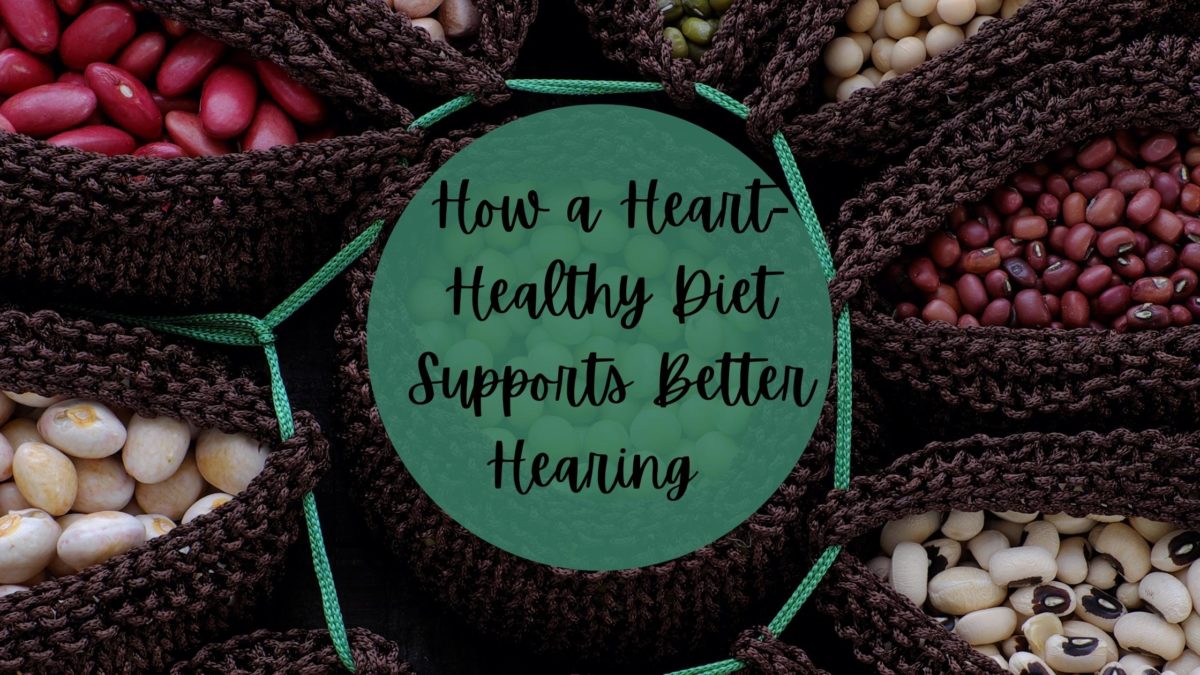A common saying is: “You are what you eat”. While this is debatable, the nutrients you do or do not receive from the foods you choose in your diet, directly affect your health and well-being. This becomes more true as we age. While many feel like they can get by with unhealthy eating habits when they are younger, these will catch up to you later in life- especially if your eating habits stay the same. It is commonly understood that diet affects important aspects of health such as cardiovascular function, blood pressure and disposition to diabetes, however, research is now finding that a healthy diet can also support healthy hearing.
Studying Diet and Hearing Loss
While it is assumed that hearing loss is a natural part of aging, this is not exactly true. While it is likely that if you reach 100 years old, there is a 100% chance you will have hearing loss. However, there are factors that can modify the severity and how soon you will develop hearing loss. A 2020 study from the Brigham and Women’s Hospital in Boston surveyed over 3,000 women of the median age of 60 concerning dietary choice and hearing ability. The study noted the diet and hearing ability at the start of the study and then three years later. The researchers found significant links between the two factors across participants. The surveys revealed that women who followed specific diets which prioritized whole, low-fat foods were 25% less likely to have hearing loss! This research suggests that some simple changes in diet can greatly reduce your risk of developing hearing loss.
How Diet Affects Hearing
Our entire health is connected. If one aspect is off then it can affect many others. For instance, when we choose to eat foods that don’t support our heart and blood pressure it affects our hearing. Your heart is responsible for pumping blood throughout the entire body, including the cells which support your hearing. When your heart isn’t functioning at its highest ability, your ears may not receive the oxygen-rich blood it relies upon to stay healthy. This can cause these cells to become damaged or destroyed which causes hearing loss. This is why eating heart-healthy foods can protect your ears as well.
What is a Heart-Healthy Diet?
There are certain foods which you should avoid, in order to protect your heart. Avoid high-fat meats and dairy products as well as heavily processed foods with high sugar contents. These foods can easily clog arteries, increase blood pressure and increase your disposition for diabetes. Instead, prioritize whole foods with low-fat meats. Make sure to eat lots of vegetables, whole grains, fruits, beans and lean meat such as fish and poultry. There are two common diets which you can use as a guide and a way to find healthy recipes.
- Alternate Mediterranean Diet: This diet is based off natural foods which you could harvest or collect in the area around the Mediterranean Sea. This includes vegetables, fruits, healthy oils, nuts, whole grains and beans, while restricting red meat.
- Dietary Approaches to Stop Hypertension: This diet is particularly helpful in keeping blood pressure low by reducing the sodium and sugar in your diet, which can cause hypertension. The DASH also encourages eating lots of fresh fruits, vegetables, fish, and lean meats.
Make Sure You’re Getting Vitamins and Minerals
In addition to maintaining a healthy diet, it is important to prioritize certain vitamins and minerals found in some foods. Specific vitamins and minerals can also improve hearing health. For instance, folic acid is a B vitamin that supports and builds new cells, including those of the inner ear.
Another important mineral is potassium which helps regulate the fluid levels of blood cells. A diet with an ample amount of potassium ensures that your ears receive the blood they need.
Magnesium is remarkable because not only does it promote bone and heart health, it can also protect against noise-induced hearing loss by reducing free radicals in the ear and protecting the inner ear from damage.
Supporting Better Hearing
While eating a healthy diet in conjunction with exercise can help protect your ears, there are many factors to consider. If you believe you may be experiencing hearing loss, it is important to take a hearing test. Hearing loss can be treated effectively, and hearing aids can bring significant benefits to your overall health and well-being! Contact us to make an appointment to have your hearing tested and find out how we can help you hear at your best for years to come.

